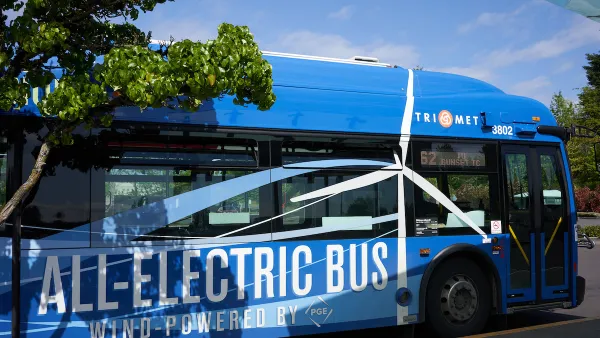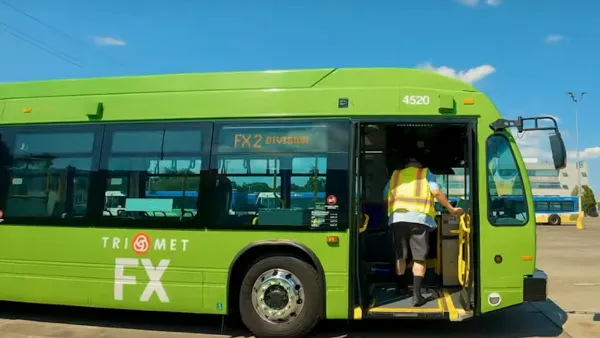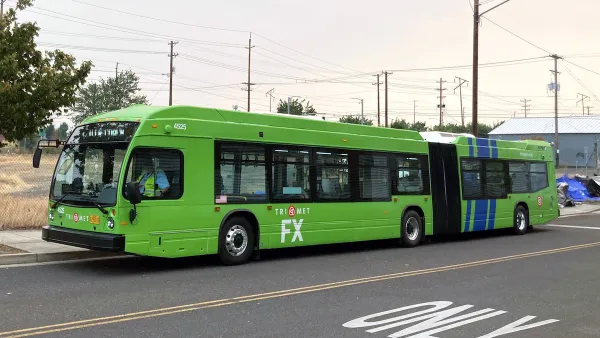The same issues afflicting transit agencies across the country, the perfect storm of declining funding and rising costs, are conspiring to challenge Portland's leadership in transit innovation and adoption, reports Ryan Holeywell.
While solutions to expected budget gaps in the coming years have yet to be adopted, it is likely that increased fares and reduced service will impact Portland's transit users beginning next year. And ominously, budget challenges will mean the, "likely end of the Free Rail Zone, an innovative program that provides no-cost rides in the center of the city and has come to symbolize the region's commitment to easily accessible transit service," writes Holeywell.
For a city that is proud of its ability to "outbox our weight class" in terms of its public transportation leadership, the expected cuts could have a long term impact. According to Holeywell, "To solve the problem next year, TriMet has proposed fare increases -- by nearly 20 percent in some cases -- as well as eliminating the Free Rail Zone program, cutting bus service and reducing the frequency of light rail trains. When you take any of those steps, [Neil] McFarlane [head of the regional transit agency] acknowledges, 'You're messing with people's lives.'"
In addition to the challenges facing the operation of the system already in place, some are questioning whether massive expansion plans are prudent in such a fiscal environment, and whether the same motives driving public officials to succeed will end up causing their failure.
"[John] Charles [president and CEO of the Cascade Policy Institute] and many other skeptics believe the current push is driven largely by local leaders' desire to continue receiving national accolades for their commitment to rail. Indeed, when U.S. News & World Report ranked Portland the No. 1 city in America for transit last year, TriMet tooted its horn by plastering ads highlighting the ranking on its vehicles. (The agency had to pull them when the publication revised its rankings due to problems with its methodology.)"
FULL STORY: Portland Struggles to Remain a Leader in Public Transit

Analysis: Cybertruck Fatality Rate Far Exceeds That of Ford Pinto
The Tesla Cybertruck was recalled seven times last year.

National Parks Layoffs Will Cause Communities to Lose Billions
Thousands of essential park workers were laid off this week, just before the busy spring break season.

Retro-silient?: America’s First “Eco-burb,” The Woodlands Turns 50
A master-planned community north of Houston offers lessons on green infrastructure and resilient design, but falls short of its founder’s lofty affordability and walkability goals.

Test News Post 1
This is a summary

Analysis: Cybertruck Fatality Rate Far Exceeds That of Ford Pinto
The Tesla Cybertruck was recalled seven times last year.

Test News Headline 46
Test for the image on the front page.
Urban Design for Planners 1: Software Tools
This six-course series explores essential urban design concepts using open source software and equips planners with the tools they need to participate fully in the urban design process.
Planning for Universal Design
Learn the tools for implementing Universal Design in planning regulations.
EMC Planning Group, Inc.
Planetizen
Planetizen
Mpact (formerly Rail~Volution)
Great Falls Development Authority, Inc.
HUDs Office of Policy Development and Research
NYU Wagner Graduate School of Public Service




























